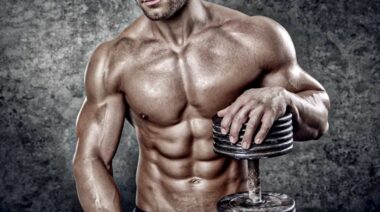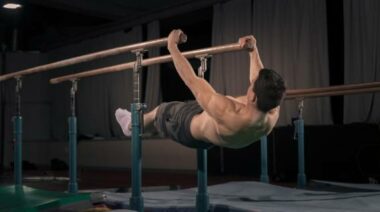A recent study, published by the Journal of the American College of Nutrition, was conducted to better understand the connection between production of estrogen and the consumption of soy and whey protein when training for muscle strength and size.
“This study starts to unravel and provide some insights into one of the real urban myths about soy protein and resistance exercise in men,” said Dr. William J. Kraemer, the lead researcher of the study.
Examining the effects of soy and whey protein supplementation on testosterone, sex hormone binding globulin (SHBG), and cortisol responses to an acute bout of resistance exercise, required 10 resistance-trained male participants in their early 20s to follow a strict and closely monitored training and diet program.
The participants were divided into three supplementation treatment groups: (1) whey protein isolate, (2) soy protein isolate, or (3) a maltrodextrin placebo control. No other supplements were allowed. Vegetarians, vegans, or subjects who consumed high-protein diets were excluded from this study.
For 14 days, these individuals would ingest 20g of their assigned supplement at the same time each morning. The participants would then perform 6 sets of 10 repetitions in the heavy squat exercise at 80% of the subject’s one repetition max.
Researchers found lower testosterone responses following supplementation with soy protein in addition to a positive cortisol response with the use of whey protein at some recovery time points, which can help the body respond better to stress as well.
SHBG did not differ between experimental treatments. More importantly, there were no significant differences between groups in changes in estradiol concentrations.
“Our main findings demonstrate that 14 days of supplementation with soy protein does appear to partially blunt serum testosterone. In addition, whey influences the response of cortisol following an acute bout of resistance exercise by blunting its increase during recovery,” researchers concluded. “Protein supplementation alters the physiological responses to a commonly used exercise modality with some differences due to the type of protein utilized.”
Reference:
1. Taylor & Francis. “The effects of soy and whey protein supplementation on acute hormonal reponses to resistance exercise in men.” ScienceDaily. ScienceDaily, 19 September 2014.






